Table of Contents
Dubai has one of the best real estate markets in the world. Foreigners can buy a wide range of freehold homes and invest without having to pay taxes on their profits. However, as with any market that’s doing well, the city’s real estate market has also seen some scams aimed at both local and foreign buyers. The Dubai Land Department (DLD) and the Real Estate Regulatory Agency (RERA) have put in place strict rules to protect buyers, but con artists are still finding ways to get around them.
It’s important to know about the most common real estate scams in Dubai and how to avoid them, whether you’re a first-time buyer, an experienced owner, or an expat looking for a home.
Why property investment scams Happen in Dubai
The real estate market in Dubai is always changing and moving quickly. New buildings go up and sell out very quickly. In a market with so much competition, some dishonest people take advantage of buyers who aren’t very good at what they’re doing, market hype, and the trust that foreign investors have in agents and developers.
Some of the main reasons scams happen are:
- Due to high demand and a sense of urgency, scarcity marketing makes people feel rushed to make a decision.
- Asymmetry of information: Buyers from other countries may not know much about Dubai’s real estate rules.
- Risks in the off-plan market: Long building times leave room for lies.
- Online platforms that are not regulated: A lot of listings are made without being checked out properly.
1. Real Estate Buyer Scam
From abroad. Often, these scams involve fake property ads, hiding problems with the project, or adding costs that were not planned for at the end of the process. Some con artists use well-written online ads to make properties that don’t exist look like they are real. Others may sell off-plan units for projects that haven’t been approved yet or have been stopped.
Common Real Estate Buyer Scams
1. Fake Property Listings
Some con artists put up fake online ads for homes that don’t exist, using appealing prices and pictures to get people to buy. Once you get in touch with them, they’ll ask for a ticket deposit and then disappear. One of the most common real estate scams in Dubai is fake ads, especially on websites that aren’t regulated. Scammers post high-quality pictures of homes that are often taken from real estate listings and list them for less than the asking price to get people to buy. When someone is interested, they ask for a “booking deposit” to hold the unit, and then they disappear.
How to Avoid:
- Only look for homes on RERA-approved sites, like Dubai REST or the official DLD website.
- Before you pay anything, ask for the Oqood or Title Deed.
- Don’t send money without a signed sales contract and information about the trust account.
2. Undisclosed Project Status
People are sometimes persuaded to buy off-plan homes in projects that have already been delayed, stopped, or not even approved by the officials. Many buyers from other countries can’t visit the site, so they depend on false information.
How to Avoid:
- Use the DLD’s Project state Check Service to find out the state of a project.
- Make sure the developer has a current RERA license and an escrow account that is set up.
- Don’t pay with cash; only use official escrow payments.
2. Real Estate Agent Scams
When people believe a real estate agent in Dubai, there are some who take advantage of that. However, most of them are honest and play by the rules. In these kinds of agency scams, papers might be faked, payment plans might not be made clear, or even more than one person might buy the same property. Some workers don’t have the right licenses and make fake RERA IDs to look like the real thing. Some people use pushy sales tactics to get people to decide quickly without doing enough study first. People who buy and sell real estate often use brokers. To avoid fraud, it is important to check the brokers’ credentials and make sure that all payments go through legal channels.
Common Real Estate Agent Scams
1. Double Selling
When a dishonest real estate agent sells the same property to more than one buyer and takes deposits from all of them, this is called “double selling.” This can happen if the owners don’t stop the property from being sold again at the DLD after signing the contract. People who fall for the scam usually don’t find out about it until it’s too late, after the con artist has left.
How to Avoid:
- Once you’ve signed a contract, make sure that the property can’t be sold again at the DLD.
2. Fake RERA IDs
Some fakes pretend to be registered agents by making fake RERA cards or using real agents’ information in the wrong way.
How to Avoid:
- Use the Dubai REST app to check an agent’s credentials.
3. Misleading Payment Plans
Some real estate agents offer good payment plans or “guaranteed rental returns” without getting proper approval from the developer.
How to Avoid:
- Make sure that the payment plan is included in the SPA that you sign.
- Be wary of claims that are made over the phone but not written down in a contract.
4. Pressure Tactics
To get you to decide quickly, they might say things like “another buyer is ready to pay” or “this price is only good today.” These strategies are meant to keep you from doing your due research.
How to Avoid:
- No matter how much pressure there is, take the time to do your research.
- If the deal seems rushed, that’s a bad sign.
3. property investment scams
Investment scams usually target wealthy people and groups that are looking for profitable real estate deals. They can involve fake co-investment partnerships, development projects with false claims of high rental returns, or other things. Sometimes, unregistered developers sell whole projects, take the money, and then disappear before the work is done. Ponzi schemes are another type of scam. In these, early investors are paid with money from new investors until the plan falls apart. These scams can be very bad because they usually involve large amounts of money. Before investing in real estate, you need to do a lot of research, including checking the property’s legal and financial status.
Common Real Estate Investment Scams
1. Ponzi or High-Return Schemes
Scam businesses say they can guarantee double-digit returns on real estate investments, but they pay old owners with money from new ones. In the end, the plan falls apart.
How to Avoid:
- If the returns seem too high, don’t believe them. In Dubai, the average home yield is between 5 and 8 percent.
- Ask for audited financial records and proof that the business is making money.
2. Unregistered Developers
Some builders use flashy ads to sell apartments in projects that don’t have RERA approval or a registered trust account. These developers take down payments, but they don’t deliver the house. All off-plan developers are required by the DLD to have a license and put buyer funds into a safe escrow account. Investors should make sure these facts are correct before sending money.
How to Avoid:
- Check the developer’s business license and make sure they are registered with RERA.
- Check to see if the project has a DLD deposit account.
3. Misrepresented Commercial Properties
In commercial real estate scams, rental income or occupancy numbers are lied about to make a property look like it makes more money. Investors are often shown fake rental reports or lease contracts that are out of date. To be safe, ask for up-to-date leases and records of rent payments, and then go see the place in person.
How to Avoid:
- Ask for up-to-date leases or proof that you are living there.
- Go to the place in person to figure out how busy it is.
4. Fake Co-Investment Opportunities
Fraudsters will sometimes offer co-investment deals, in which more than one investor pools their money for a “promising development project.” In fact, these projects might not exist, and the money is used for other things.
How to Avoid:
- Make sure that all of your partnership deals are signed and registered.
- Do background checks on partners and look into their business past.
Practical Due Diligence Tips for Buyers & Investors
Performing due diligence is the most effective way to protect your money in Dubai’s property market.
Key Steps to Protect Yourself:
Verify All Parties
- Check the developer’s and agent’s license status through DLD/RERA.
- Confirm the property is legally owned by the seller.
Use Escrow Accounts Only
- Ensure all off-plan payments go to a DLD-approved escrow account, not personal accounts.
Get Legal Advice
- Consult a Dubai-based real estate lawyer before signing any agreement.
Cross-Check Contracts
- Ensure every promise, payment plan, and completion date is stated in the SPA.
Visit the Property or Site
- For off-plan, visit the construction site; for ready property, inspect physically.
Research Market Prices
- Compare the property’s asking price with similar listings to avoid overpaying.
Role of DLD and RERA in Preventing Scams
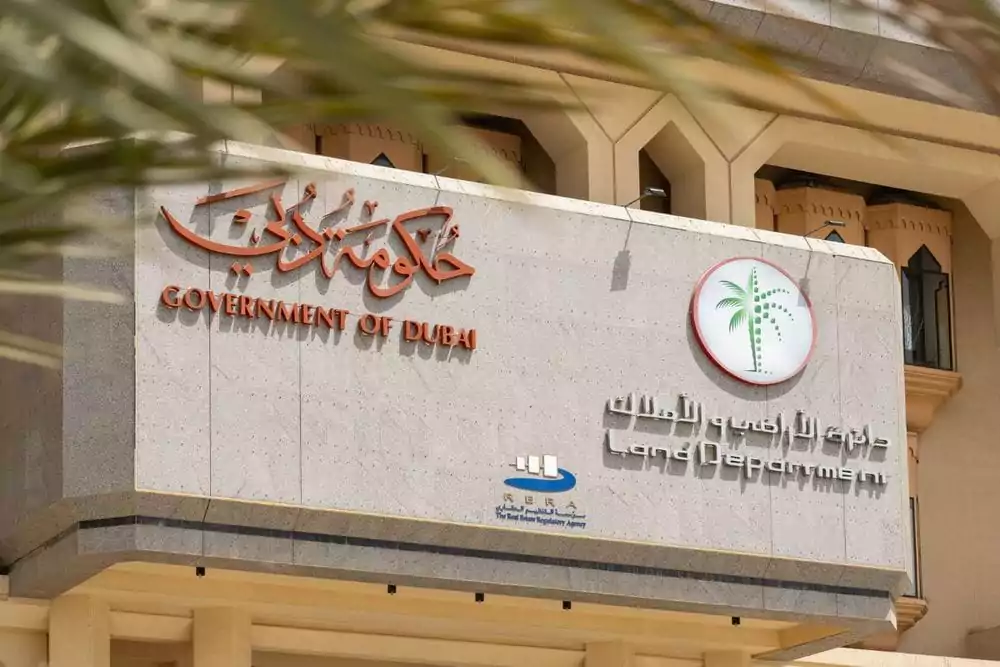
The Dubai Land Department (DLD) and the Real Estate Regulatory Agency (RERA) have put in place a number of safety measures, including:
- Project Monitoring: Making sure that projects that go off-plan are backed by trust accounts.
- Broker Licensing: Each worker needs to have a current RERA license.
- Online Verification:Users of the Dubai REST app can look up information about properties and agents.
- Dispute Resolution:RERA offers settlement for disagreements about property.
Winding Up
If you take the right steps, Dubai’s real estate market is still one of the safest and most profitable places to buy in the world. Most developers and marketers follow the rules and are honest, but there are still a few bad apples who can take advantage of buyers and cause them to lose a lot of money.
FAQ (Frequently Asked Questions)
The Dubai REST app or the DLD’s website can be used to check their license and RERA ID.
Always send money to the developer’s escrow account that has been accepted by DLD. Do not send money straight to a person or agent.
Scams happen, but they’re not common because of strict laws. They usually target foreign buyers who don’t know much about the market.

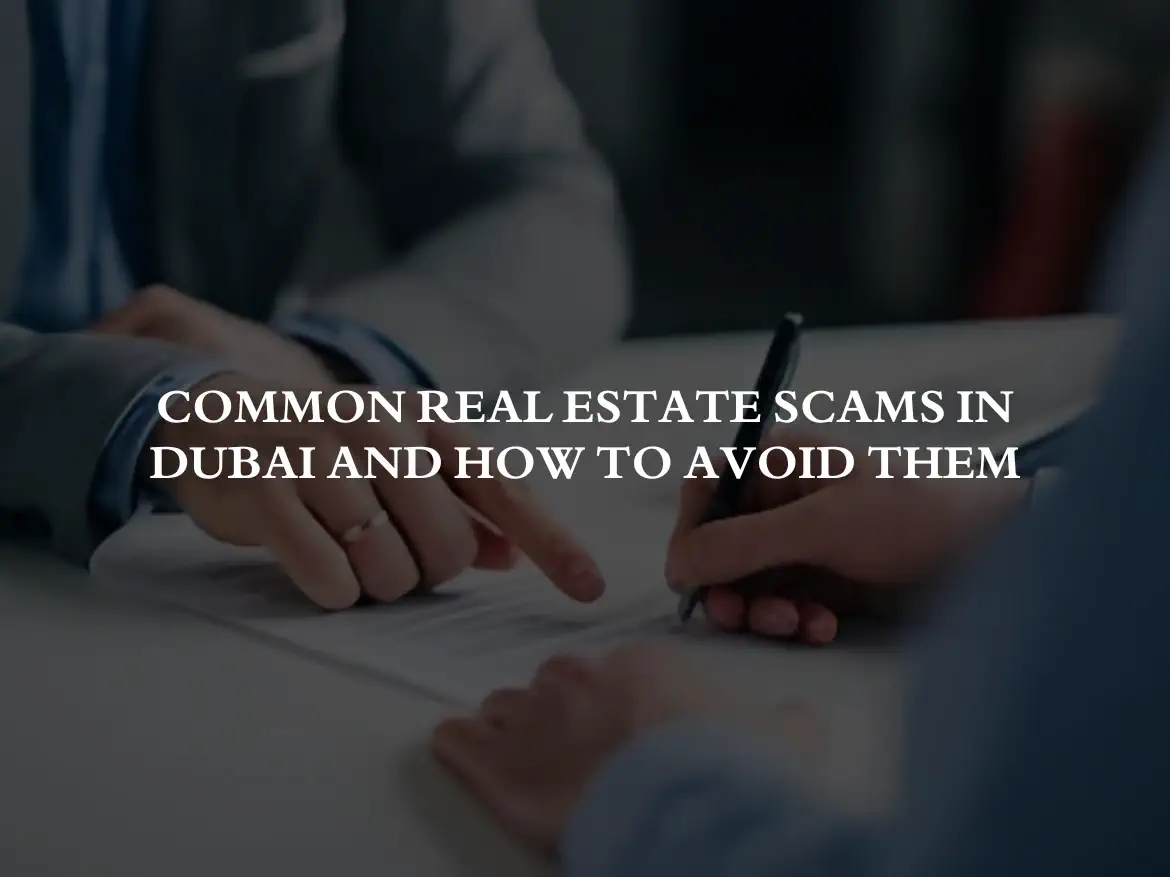
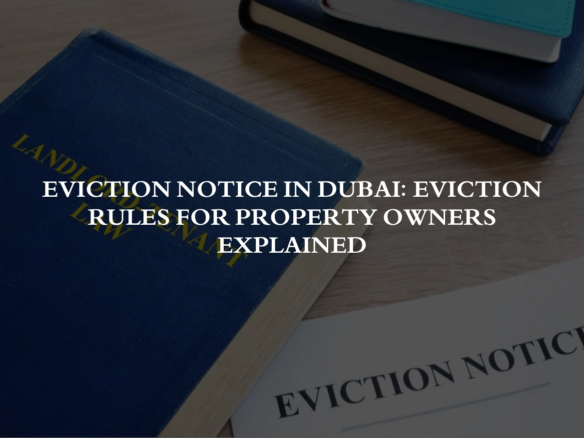
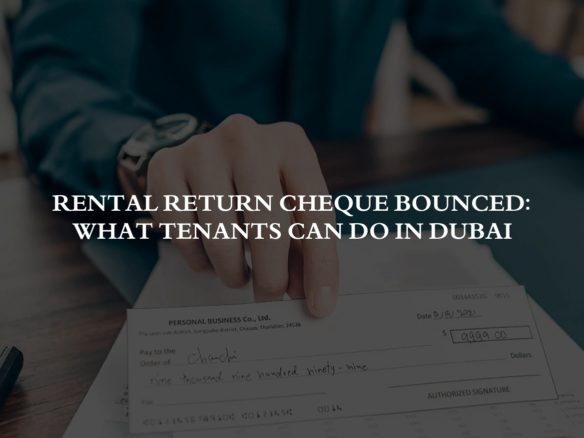
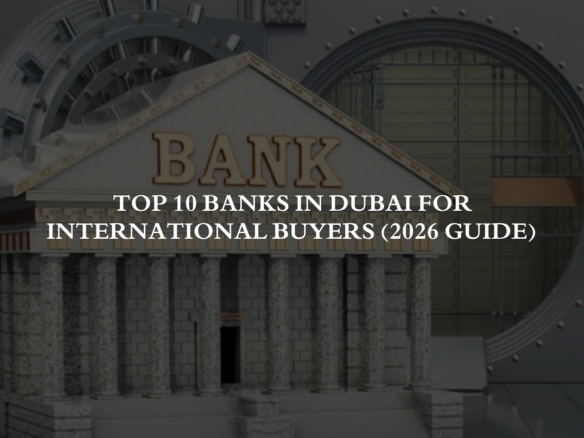
Join The Discussion